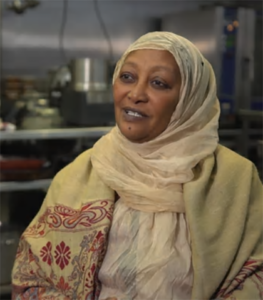Giving refugees a voice in their own resettlement
International discussions are about to begin on how refugees can have a greater say in their own resettlement arrangements.
A meeting at Ottawa, in Canada, this month will look at how to ensure the active participation of refugees in resettlement in line with the goals of the Global Compact on Refugees.
 Manager of International and Community Development at migrant and refugee settlement agency AMES Australia Melika Yassin Sheikh-Eldin will take part in the working group on refugee resettlement ahead of the UNHCR’s Annual Tripartite Consultation on Resettlement (ATCR) in July.
Manager of International and Community Development at migrant and refugee settlement agency AMES Australia Melika Yassin Sheikh-Eldin will take part in the working group on refugee resettlement ahead of the UNHCR’s Annual Tripartite Consultation on Resettlement (ATCR) in July.
“The meeting in Ottawa is effectively an update on the global resettlement landscape, the three year strategy on resettlement, complementary pathways and the Global Refugee Forum,” Ms Sheikh-Eldin said.
“We want to see more active participation of refugees as full stakeholders in in resettlement and in the processes outlines in the compact so that their voices can be hard,” she said.
“We are also looking at rethinking the ATCR and its infrastructure and asking what direction it should take and how it can become more effective and responsive to the needs of refugees,” Ms Sheikh-Eldin said.
AMES Australia has been contributing to the ATCR since 2007 and Ms Sheikh-Eldin has been contributing insights gained from her experiences as a former refugee and also from her extensive background as a settlement worker.
The Global Compact on Refugees was affirmed by the United Nations General Assembly in December 2018 after two extensive consultations led by UNHCR with Member States, international organisations, refugees, civil society, the private sector, and experts.
The compact is a framework for more predictable and equitable responsibility-sharing, recognising that a sustainable solution to refugee situations cannot be achieved without international cooperation.
It provides a blueprint for governments, international organisations, and other stakeholders to ensure that host communities get the support they need and that refugees can lead productive lives.
It constitutes a unique opportunity to transform the way the world responds to refugee situations, benefiting both refugees and the communities that host them.
Its four key objectives are to: ease the pressures on host countries; Enhance refugee self-reliance; expand access to third-country solutions; support conditions in countries of origin for return in safety and dignity.












